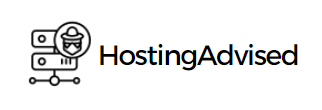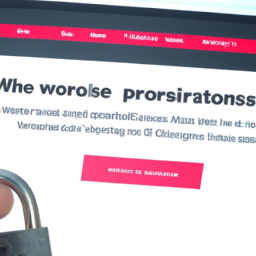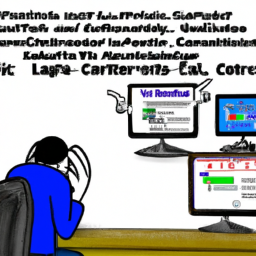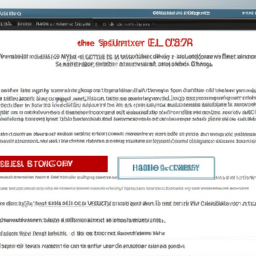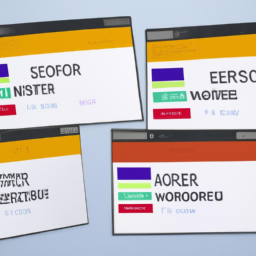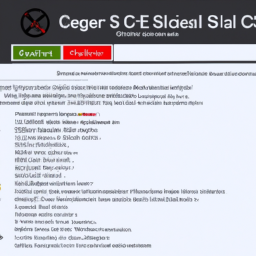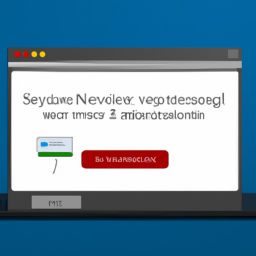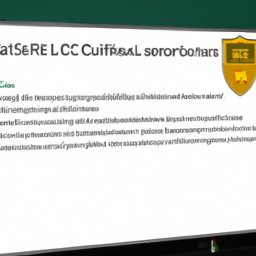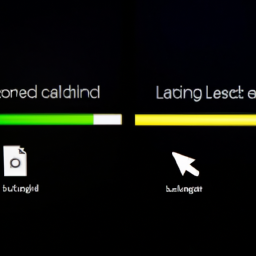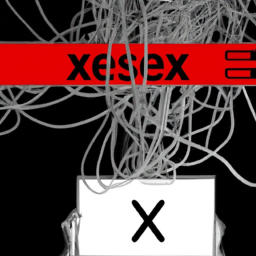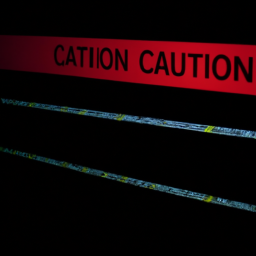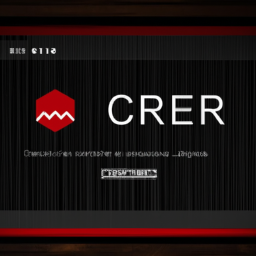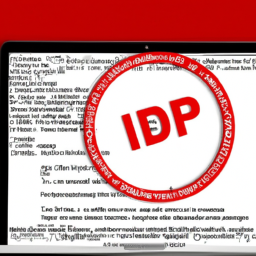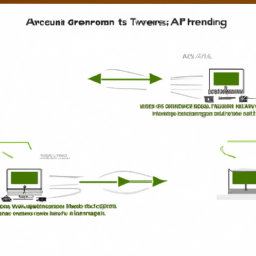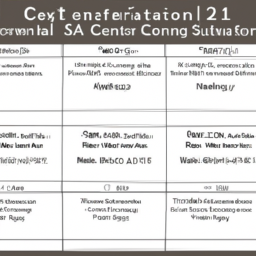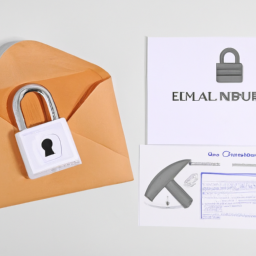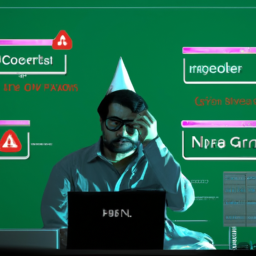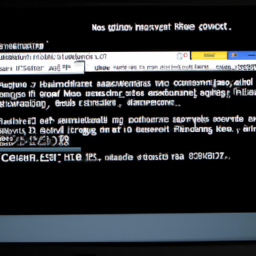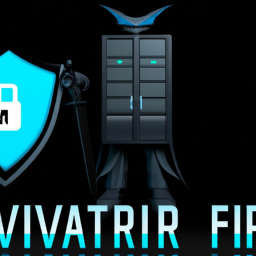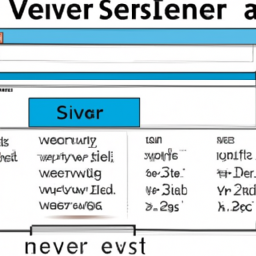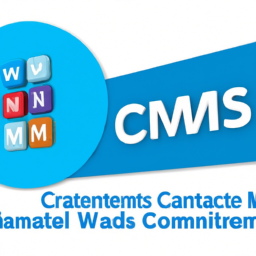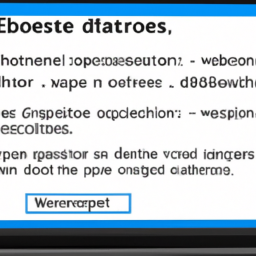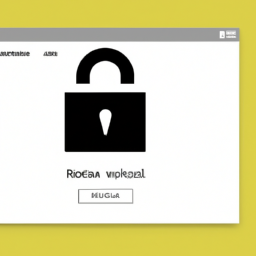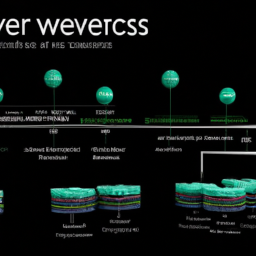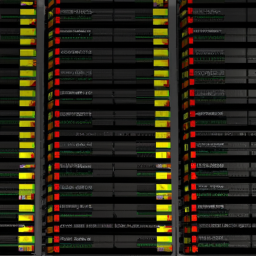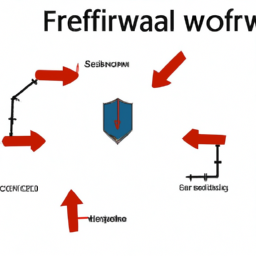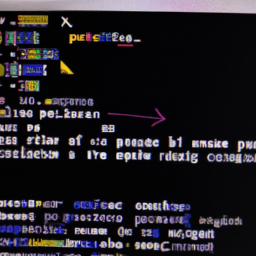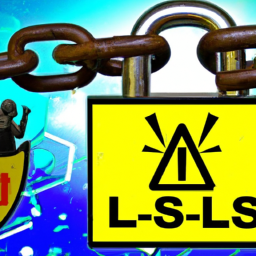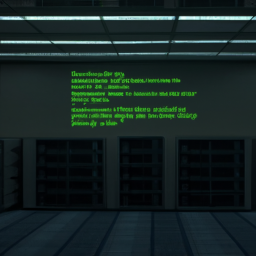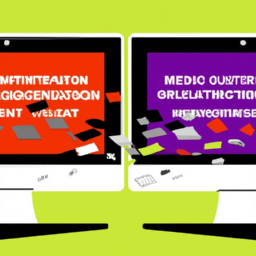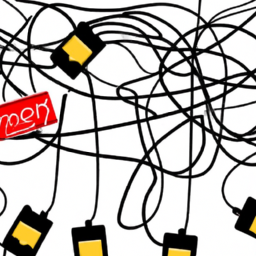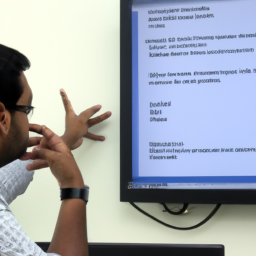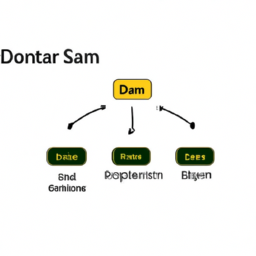Are you frustrated with your website not functioning properly on your web hosting platform? Don’t worry, you’re not alone. Many website owners face compatibility issues due to outdated PHP versions.
Let’s consider a scenario: You have developed a feature-rich website using the latest PHP functionalities, but your web hosting provider is stuck with an older PHP version. As a result, your website’s performance and security are compromised, leading to a poor user experience.
That’s where PHP version compatibility comes into play. By ensuring that your web hosting platform supports the PHP version required by your website, you can enhance the user experience and avoid compatibility issues.
In this article, we will delve into the importance of PHP version compatibility, how to check and upgrade PHP versions, and best practices for ensuring seamless compatibility to enhance your web hosting user experience.
Key Takeaways
- Outdated PHP versions can lead to compatibility issues, compromised performance, security vulnerabilities, and a poor user experience.
- Using the latest PHP version offers optimal website performance, improved security, and compatibility with the latest web technologies.
- Regularly updating PHP versions is crucial for optimal performance and security.
- Handling compatibility issues involves identifying problems, updating code, and thoroughly testing the website.
Importance of PHP Version Compatibility
Having the right PHP version compatibility is like having the perfect paintbrush for a website artist, allowing them to create masterpieces without any limitations.
The impact of outdated PHP versions on web hosting user experience cannot be overstated. It can lead to performance issues, security vulnerabilities, and lack of access to new features and improvements.
On the other hand, using the latest PHP version offers a multitude of benefits. It ensures optimal website performance, improved security measures, and compatibility with the latest web technologies. Additionally, the latest PHP version often introduces new functions, methods, and syntax, making development more efficient and reducing coding errors.
Understanding PHP versions is essential for web hosting users to make informed decisions and leverage the full potential of their websites.
The next section will delve deeper into the different PHP versions and their implications.
Understanding PHP Versions
With a firm grasp on the ever-evolving world of web development, it’s crucial to understand the dynamic nature of PHP releases and their impact on your website. Common PHP version errors can arise when developers fail to update their code to be compatible with the latest PHP versions. These errors can result in broken functionality, security vulnerabilities, and poor website performance.
Outdated PHP versions can significantly impact your website’s performance, causing slow loading times, frequent crashes, and potential compatibility issues with other web technologies. To ensure optimal performance and security, it’s essential to regularly update your PHP version and address any compatibility issues.
In the next section, we will explore the process of checking PHP version compatibility, enabling you to seamlessly transition into maintaining a smooth and efficient web hosting experience.
Checking PHP Version Compatibility
By regularly checking for the latest updates, you can ensure that your website functions smoothly and remains secure.
One important aspect of checking PHP version compatibility is verifying that your server meets all the necessary requirements. This involves confirming that your server has the required PHP version installed and that it supports the extensions and libraries needed by your website.
Additionally, it is crucial to troubleshoot any compatibility errors that may arise. This involves identifying the specific error messages or issues and investigating the root cause. Common compatibility errors include deprecated functions, incompatible syntax, or incompatible extensions. By resolving these errors, you can ensure that your website functions optimally.
Now, let’s delve into the next section about upgrading PHP versions to further enhance your website’s performance and security.
Upgrading PHP Versions
Upgrade your PHP version to unleash the full potential of your website and ensure top-notch performance and security. Upgrading PHP can significantly improve the speed and overall performance of your website.
Each new PHP version comes with various performance enhancements, including optimized memory usage and improved execution time. By upgrading to the latest PHP version, you can take advantage of these improvements and provide a faster and smoother browsing experience for your users.
The impact of PHP version on website speed cannot be underestimated, as outdated PHP versions can slow down your website, leading to higher bounce rates and lower search engine rankings.
Upgrading your PHP version is a crucial step in optimizing your website’s performance and ensuring compatibility with the latest web technologies.
In the next section, we’ll discuss how to handle compatibility issues when upgrading PHP versions, ensuring a seamless transition for your website.
Handling Compatibility Issues
Make sure your website is on the cutting edge of technology and effortlessly navigate the ever-changing landscape of software updates to maintain optimal performance. When dealing with PHP version compatibility issues, it’s important to troubleshoot and resolve any conflicts that may arise.
Here are three key steps to help you handle compatibility issues effectively:
-
Identify the problem: Start by reviewing error logs and checking for deprecated or incompatible functions or extensions in your code. This will give you a clear understanding of the issues at hand.
-
Update your code: Once you’ve identified the compatibility issues, update your code to use compatible functions and extensions. This may involve rewriting certain sections or finding alternative solutions.
-
Test thoroughly: After making the necessary changes, thoroughly test your website to ensure that it functions correctly with the new PHP version.
By following these steps, you can resolve compatibility conflicts and ensure a smooth transition to a new PHP version.
Best Practices for Ensuring PHP Version Compatibility
Now that you understand the challenges of handling compatibility issues, let’s discuss the best practices for ensuring PHP version compatibility. It is crucial to keep up with the latest PHP version requirements to ensure smooth functioning of your website or application. Using an outdated PHP version can have a significant impact on your website’s performance and security.
To help you navigate through the complexity of PHP version compatibility, I have prepared a table that outlines the minimum PHP version requirements for popular content management systems (CMS) and frameworks. This table will serve as a handy reference guide, allowing you to easily identify the PHP version needed for your chosen CMS or framework. By following these best practices and using the correct PHP version, you can enhance the user experience and ensure your website operates at its full potential.
| CMS/Framework | Minimum PHP Version | Latest Stable PHP Version |
|---|---|---|
| WordPress | 5.6 | 8.0 |
| Joomla | 3.9 | 7.4 |
| Drupal | 7.3 | 9.3 |
| Laravel | 7.3 | 8.0 |
Remember, staying up to date with PHP version compatibility is essential for a seamless web hosting experience.
Frequently Asked Questions
How can I determine the PHP version compatibility of a specific web hosting platform before purchasing a hosting plan?
To determine the PHP version compatibility of a web hosting platform before purchasing a hosting plan, it’s important to consider the significance of PHP version updates for website security. You can manually check the compatibility by following these steps:
1) Access the hosting provider’s website and search for their documentation or support section.
2) Look for information on supported PHP versions or contact their customer support for clarification.
This will ensure that your website remains secure and functions properly with the hosting platform.
Are there any tools or plugins available to help automatically check the PHP version compatibility of my website?
Regularly updating your PHP version is crucial for a smooth and secure website. By keeping up with the latest PHP versions, you ensure compatibility with new features and security patches. Older PHP versions often have compatibility issues that can lead to performance issues or even security vulnerabilities.
To automatically check the PHP version compatibility of your website, there are various tools and plugins available that can scan your code and highlight any potential compatibility problems.
What should I do if my website experiences compatibility issues after upgrading to a newer PHP version?
If your website experiences compatibility issues after upgrading to a newer PHP version, there are a few troubleshooting steps you can take.
First, check for any error messages or warnings in your website’s error logs. This can give you clues about the specific compatibility issue.
Next, review any third-party plugins or themes you’ve installed, as they may need to be updated to be compatible with the new PHP version.
Finally, consider rolling back to the previous PHP version while you address the compatibility issue.
To avoid such problems, it’s important to test PHP version compatibility before upgrading. This can be done by setting up a testing environment that mirrors your production environment and running your website on the new PHP version to identify and fix any compatibility issues beforehand.
Are there any risks or potential drawbacks involved in upgrading PHP versions?
Upgrading PHP versions can come with risks and potential drawbacks. According to a survey by WP Engine, 56% of websites experienced compatibility issues after upgrading to a newer PHP version.
Risks include plugins breaking, themes not working correctly, and potential security vulnerabilities.
Drawbacks may include downtime, loss of functionality, and the need for additional troubleshooting and fixes.
It’s important to thoroughly test and prepare before upgrading to minimize these risks and drawbacks.
Can I downgrade my PHP version if I encounter compatibility issues with the latest version?
Yes, you can downgrade your PHP version if you encounter compatibility issues with the latest version. When troubleshooting compatibility issues, it may be necessary to revert to a previous PHP version. This previous version should be better suited for your web hosting environment. By downgrading PHP versions, you can ensure that your website functions properly. It also helps to avoid any potential problems caused by the latest version.
Conclusion
In conclusion, ensuring PHP version compatibility is crucial for enhancing your web hosting user experience. By understanding the importance of PHP versions and regularly checking for compatibility, you can avoid compatibility issues and provide a seamless experience to your users.
Upgrading to the latest PHP versions and following best practices will not only improve performance and security but also evoke a sense of reliability and trust in your audience.
So stay informed, stay updated, and deliver a top-notch web hosting experience.
